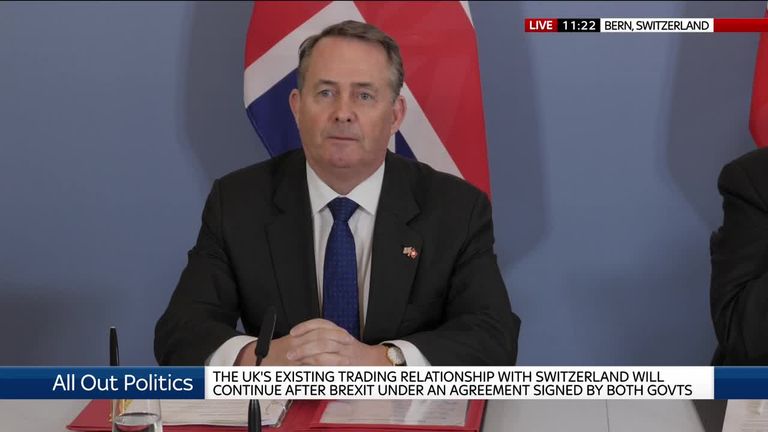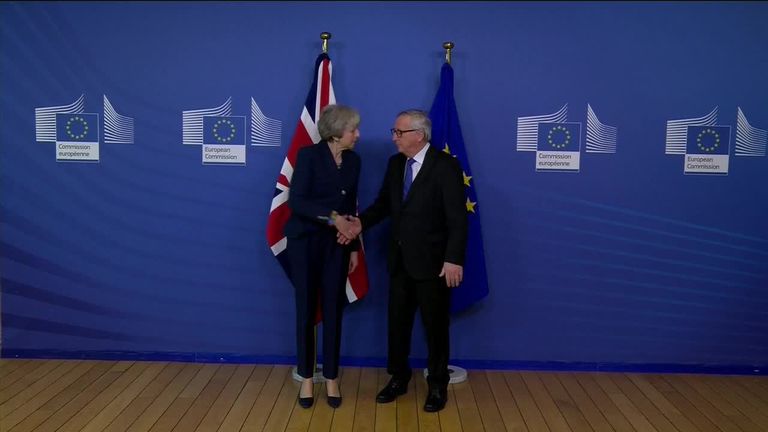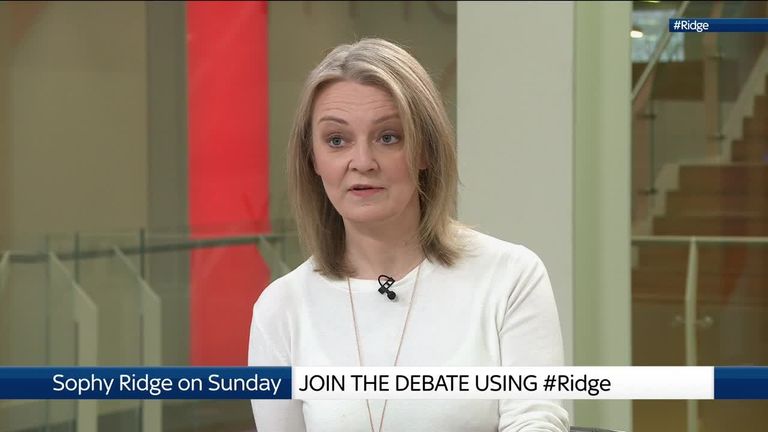Theresa May's Brexit overture to Labour is a high-risk move
Her letter is being seen as either opening the door to a soft Brexit or as a rejection of Jeremy Corbyn's customs union proposals.
Monday 11 February 2019 13:55, UK
With exit day looming, and the prospect of negotiating changes to the backstop still elusive, Theresa May has made an overture to Jeremy Corbyn.
In a conciliatory letter, the prime minister offered fresh talks, alongside concessions on workers' rights, the environment and even financial support for deprived communities, all designed to win over wavering Labour MPs to support her deal.
Depending on which newspaper you read, it is being interpreted either as Mrs May opening the door to a soft Brexit - at the risk of a cabinet split - or as a rejection of Jeremy Corbyn's proposals for a permanent customs union.
The truth is that as ever, the prime minister is keeping her options open.
Justice minister Rory Stewart, touring the TV studios this morning, fuelled the idea that a cross-party compromise could be in the offing, saying "there isn't actually as much dividing us from the Labour Party as some people suggest".
The letter does not explicitly rule out any of the demands that Jeremy Corbyn put forward last week.
But instead of a customs union, Mrs May says she is trying to negotiate the same benefits Labour seeks from one - near-frictionless trade to protect jobs and avoidance of a hard border.
Leaving the customs union is still a red line, Mrs May's spokesman has reiterated, so that Britain can negotiate its own trade deals.
Sceptical Labour MPs say there is therefore an irreconcilable divide between the two parties.
Stephen Doughty, one of the Labour MPs urging colleagues to back a second referendum, says the letter is therefore "ultimately meaningless" and shows that Labour's offer to the government has been rejected.
Is Mrs May's audience then principally Labour backbenchers in Leave-supporting constituencies, 25 of whom rejected an attempt by their party leader to delay Brexit at the end of January?
Number 10 is certainly putting on a last-ditch charm offensive for them, in the hope of peeling off enough to get a deal through parliament, even if the Labour frontbench in the end decides to reject her withdrawal deal.
But if that is the strategy, the maths will be very tight.
A cabinet minister who spoke to me last week played down the idea that the government would back a customs union, saying: "For every Labour MP you might get, you would lose a Tory."
The minister was also sceptical that Labour backbenchers could be relied on to support the current deal, during the weeks it could take for Brexit legislation to make its way through parliament.
"How strong is that Labour support?" they added.
"It isn't just one vote on the deal, there's the withdrawal bill to get through, and lots of amendments. Voting with us time after time would mean they get a hard time with their local parties."
Meanwhile, members of the European Research Group say Mrs May has been assuring them privately in recent weeks that she is still trying to get something acceptable to Conservatives and the DUP, and is not intending to appeal to Labour instead.
If the letter is a veiled threat to hardline Brexiteers that in the end they must back the deal or risk a softer Brexit, their response is that she must secure something substantial in Brussels.
A minister who resigned over the deal said: "118 Conservatives voted against the withdrawal agreement.
"If she doesn't get something the DUP and a decent number of ERG members can support, she is looking at needing 80 or 90 Labour MPs. It's not realistic."
Mrs May has bought some more time.
The most significant development of the weekend is that MPs will have another Brexit vote at the end of this month, an attempt to stave off resignations by Tory moderates who had threatened to try and delay Brexit this week.
As she tries to court Tory Brexiteers and Labour rebels towards a possible compromise, Mrs May can only hope they don't cancel each other out.








